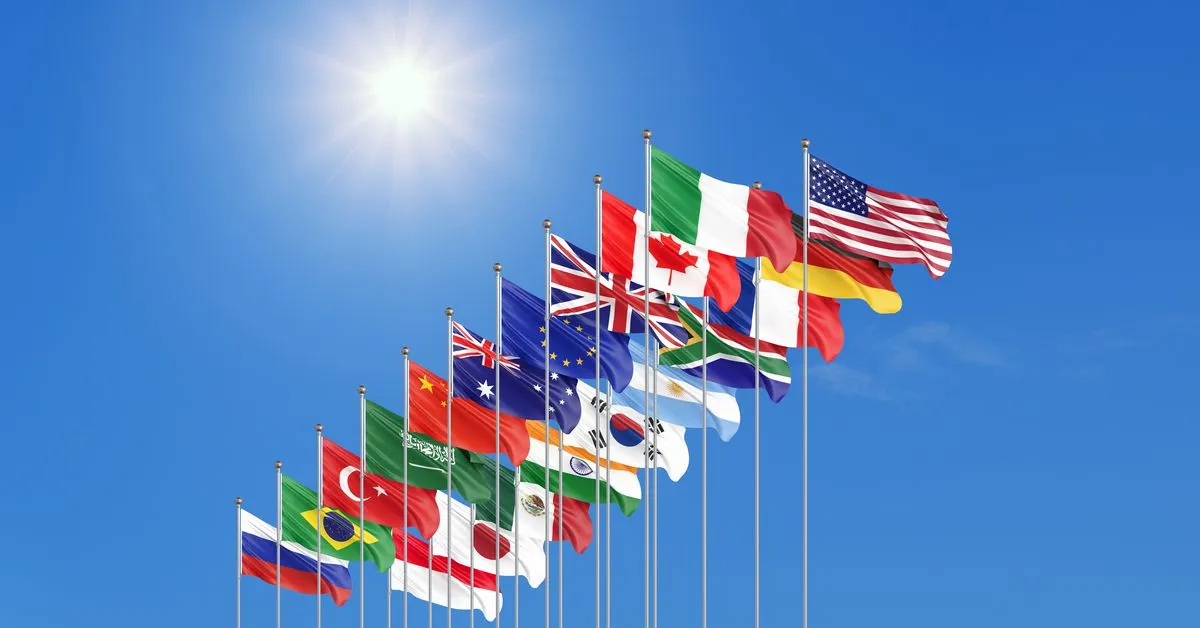Global leaders are setting up universal rules and standards for the crypto sector after its headline-making implosion last year. While they appear to have reached a consensus on most things, advanced and emerging economies seem to be diverging on the treatment of stablecoins, journalists have learned from two senior officials involved in key discussions. Advanced economies that make up the Group of Seven (G-7) appear more open to allowing and regulating stablecoins, which are tied to the value of other assets such as fiat currencies. But emerging economies represented in the wider grouping G-20 are calling for tougher restrictions, or even prohibitions, over concerns that widespread stablecoin use could present a relatively greater threat to monetary policy in these jurisdictions.
I don’t personally think the introduction of crypto assets or stablecoins could seriously or adversely affect the macro economy or impact monetary policy of the U.S., Euro area or Japan. But macro-financial implications are much more significant in emerging markets, said Toshiyuki Miyoshi, deputy director-general of the Supervision Bureau at Japan’s Financial Services Agency, which is also part of the nation’s G-7 presidential efforts in shaping global crypto rules.
With regards to stablecoins, advanced economies don’t have any worries, but emerging economies have major concerns, said a senior official of the G-20 not authorized to speak on the matter publicly. Stablecoin regulation is a point of difference. Global regulators sprung into action after the collapse of the terraUSD stablecoin in May 2022 caused nearly $60 billion to evaporate from markets, even though some regulators have said such implosions in crypto have had no direct impact on broader financial stability.
The two groupings of nations have committed to taking the lead on framing globally coordinated norms for crypto. Japan and India currently hold presidencies of the G-7 and the G-20 respectively. The G-20 is made up of the G-7 jurisdictions, along with 13 others, including 10 emerging economies. Together, the two bodies, to varying degrees, are relying on global standard-setters such as the International Monetary Fund (IMF), the Financial Stability Board (FSB) and the Financial Action Task Force (FATF) to make relevant recommendations and rules for the sector.
While both groupings have vowed to implement FATF’s anti-money laundering rules for crypto, recent statements made by the forums have indicated differences in how they view the treatment of stablecoins. The G-7 has said its nations will align with the FSB’s recommendations for stablecoins, which are focused on the impact of stablecoin use on wider financial stability. Meanwhile, the G-20 is looking to align with a more nuanced synthesis paper jointly produced by the IMF and the FSB expected between September and October.
Emerging economies are concerned about stablecoins because of their potential impact on the effectiveness of monetary policy if widely used, according to Miyoshi. Monetary policies are measures set by a country’s central bank to control the supply of money in the economy and achieve growth.
If, for example, USD-denominated stablecoins were introduced and began circulating in very small emerging markets, that could hurt the effectiveness of their monetary policy or make capital flows in those nations more volatile, Miyoshi said. He added that it’s hard to imagine that the dollar or euro could be replaced by a stablecoin if it circulated in G-7 jurisdictions, which include the U.S., U.K., Canada and Japan.
The G-7 and the G-20 have indicated different degrees of commitment towards framing global crypto policy. The G-7 has pushed for tighter norms and signaled its commitment to implementing the FSB’s norms for regulating crypto assets and the IMF’s recommendations on central bank digital currencies (CBDCs). The FSB’s individual recommendations for regulating crypto and stablecoins are expected in July 2023.
We, the G-7, strongly support the finalization of the FSBs two sets of high-level recommendations, one on crypto asset activities and markets, and the other on stablecoin arrangements, Miyoshi said. India, meanwhile, used its agenda-setting power as G-20 president to bring in the IMF to lead consultations as the FSB, the de facto leader of framing global crypto rules, was seen to align more with the U.S.
The IMF-FSB synthesis paper is also focused on crypto’s implications for monetary policy, capital flows, international monetary system, or tax revenues, Miyoshi added. The international community will make the best efforts to agree on this, Miyoshi said, indicating the G-7 might agree to a compromise. The concern of G-20 economies around stablecoins may be allayed by the FSB recommending comprehensive stablecoin regulations.
